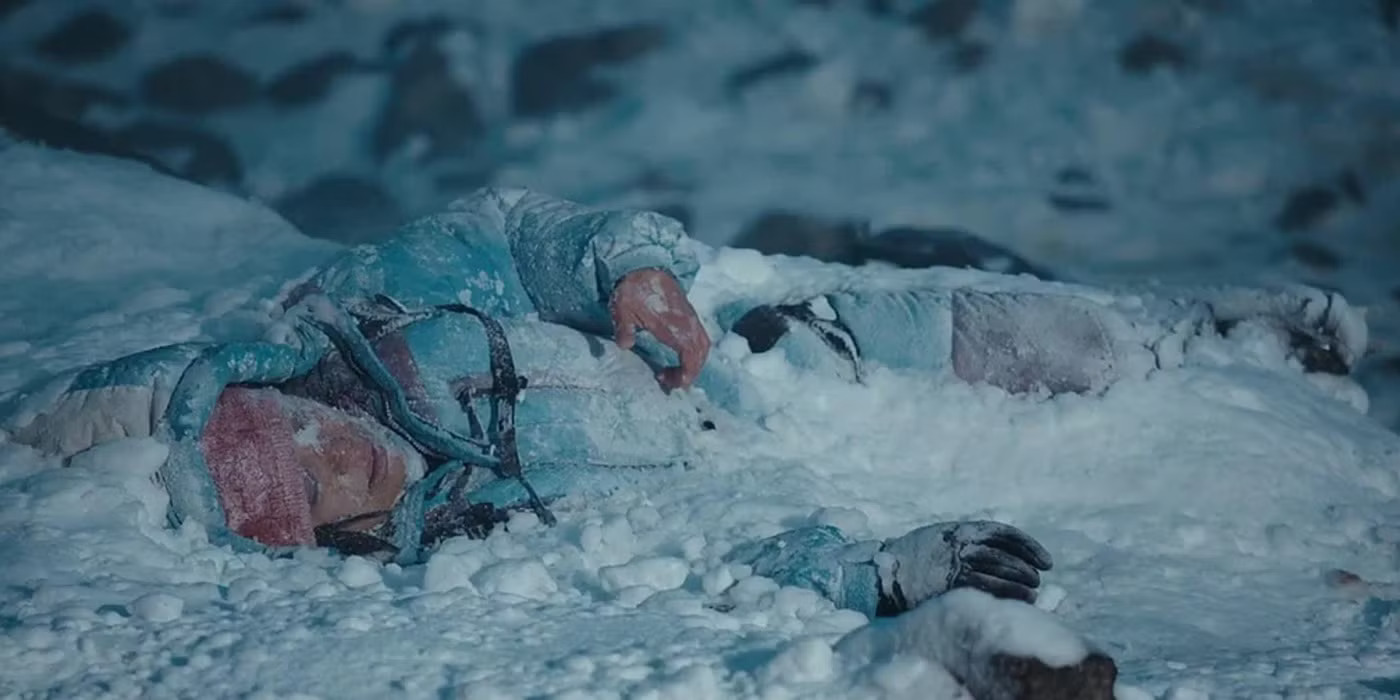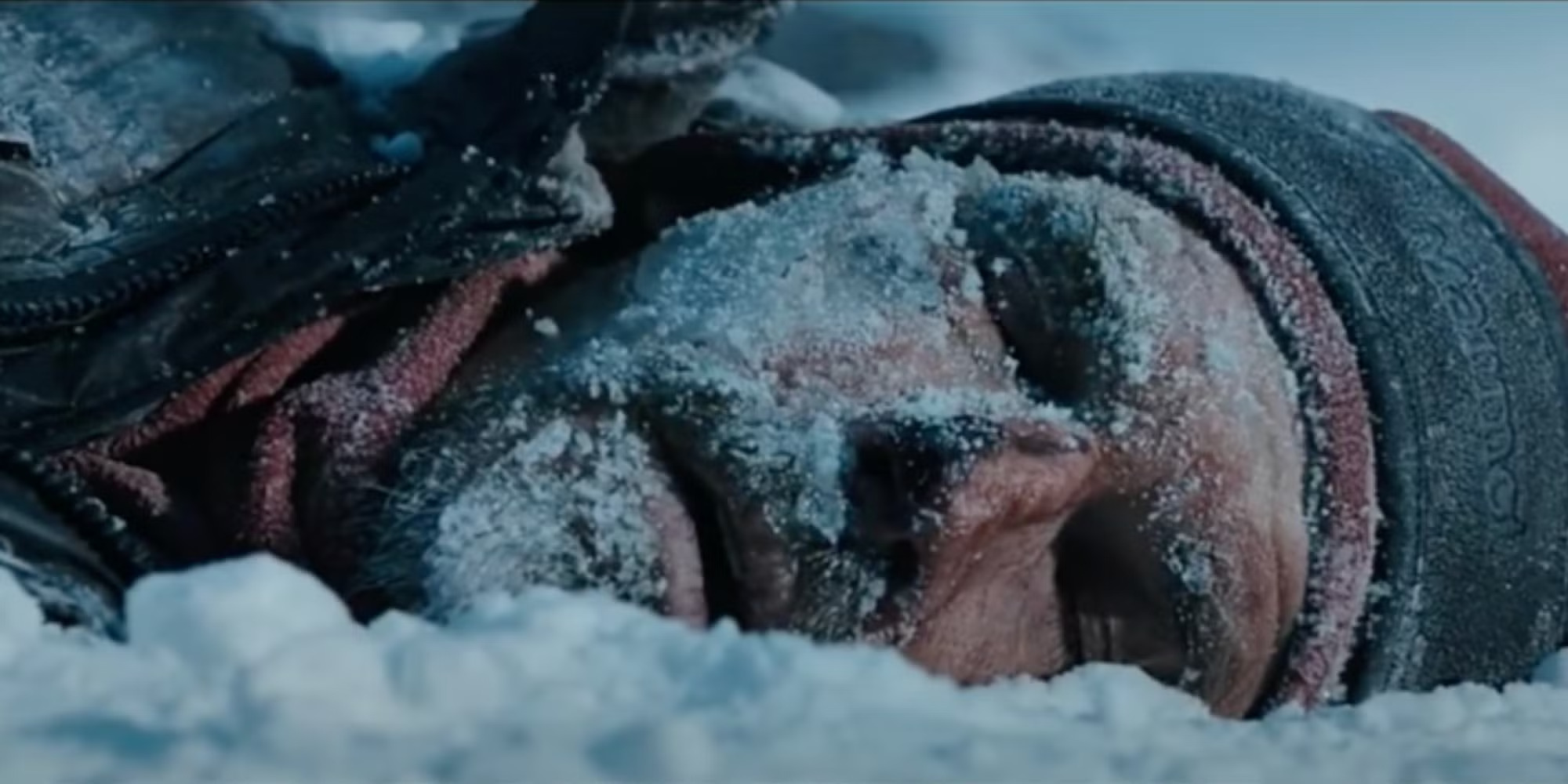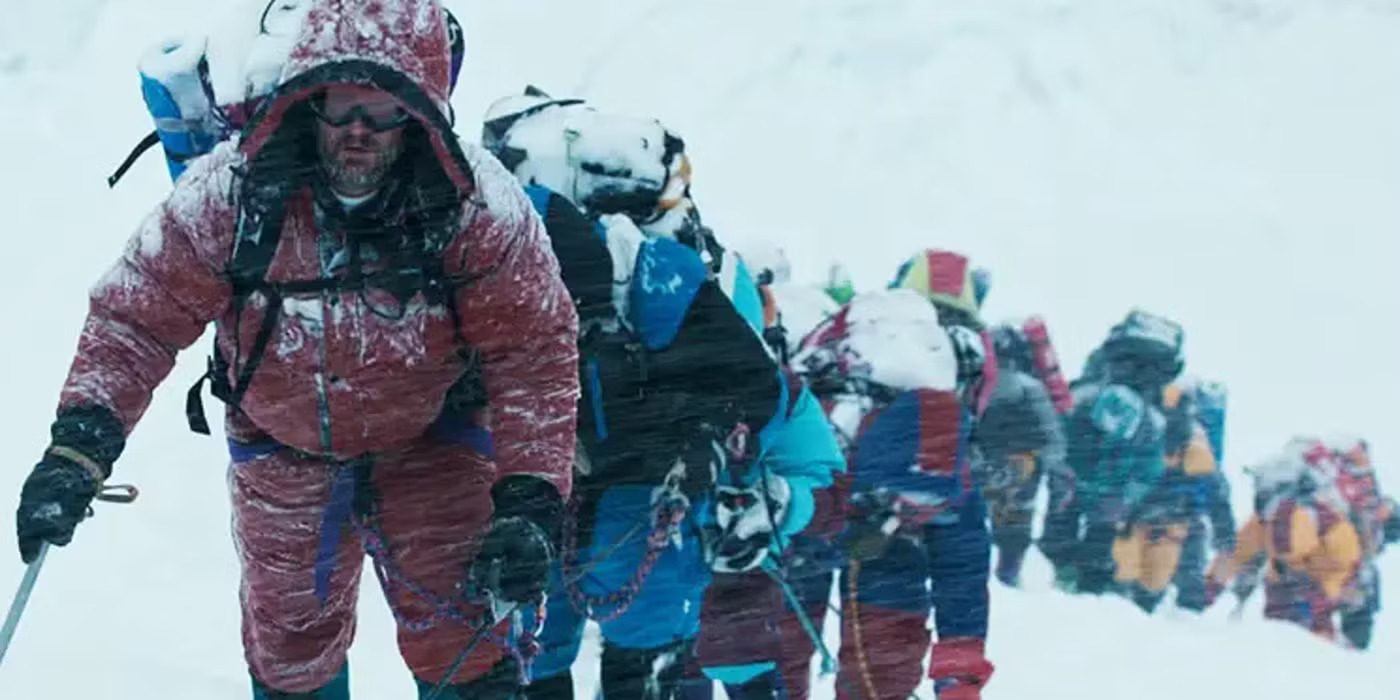The ending of Everest portrays the surviving climbers returning home to a heartfelt reunion with their loved ones. Beck Weathers, one of the climbers who miraculously survived, is greeted by his wife, Peach, highlighting the emotional toll of the tragic expedition. The scene at the New Zealand airport underscores the devastating loss suffered by the families of those who did not make it back.
The film starts with Rob Hall, an experienced guide from Adventure Consultants, preparing for his expedition while his pregnant wife, Jan, stays behind. His team includes climbers like Doug Hansen, Yasuko Namba, Jon Krakauer, and Beck Weathers. Alongside them is Scott Fischer, another guide leading a separate group. Their journey to the summit is marked by camaraderie and determination, but their ascent foreshadows the tragedy to come.
Despite successfully reaching the summit, the climbers are caught in a fierce storm during their descent. Extreme weather conditions, coupled with exhaustion and a lack of oxygen, leave many stranded. The chaos resulted in the loss of multiple climbers, including Rob Hall, Doug Hansen, Yasuko Namba, Scott Fischer, and Andy Harris. The elements prove to be insurmountable, making rescue efforts nearly impossible.

Beck Weathers’ Survival and the Personal Cost of Everest’s Deadly Challenges
Beck Weathers’ survival is one of the most astonishing aspects of the tragedy. Initially left for dead due to severe frostbite and hypothermia, Beck regains consciousness and makes his way back to camp. His eventual rescue, orchestrated by his wife and the American Embassy, involves a daring helicopter evacuation—a risky maneuver given Everest’s extreme altitude. His perseverance and will to live remain one of the most inspiring elements of the story.
Beck Weathers’ experience underscores the personal sacrifices associated with extreme mountaineering. A seasoned climber, Beck had previously prioritized adventure over family, causing strain in his marriage. However, his near-death experience brings about a transformation, leading to reconciliation with his wife, Peach. His injuries, including the loss of his nose and hands, serve as permanent reminders of the expedition’s deadly consequences.
During the descent, Beck and Yasuko are deemed beyond saving due to their deteriorating physical states. Beck’s impaired vision from prior eye surgery and Yasuko’s hypothermia render them helpless in the face of the brutal storm. Limited resources and the need to assist other climbers force their companions to leave them behind. While Beck miraculously survives, Yasuko tragically succumbs to the elements.

The Perils of Everest Hypoxia Inexperience and the Harsh Reality of Survival
Andy Harris’ death highlights the dangers of hypoxia—a condition caused by oxygen deprivation at high altitudes. Tasked with delivering oxygen to Rob Hall, Andy begins hallucinating due to lack of oxygen. His disoriented state leads him to remove his outer layers, a phenomenon known as paradoxical undressing before he falls to his death. The real details of his fate remain unknown, but the film portrays a plausible scenario of what may have happened to him.
The 1996 disaster is attributed in part to the inexperience of some climbers who underestimated Everest’s dangers. Many lacked sufficient mountaineering skills, leading to critical errors during the descent. The race to the summit and overcrowding on the mountain further exacerbated the situation. As depicted in the film, Everest’s harsh reality does not favor those unprepared for its challenges.
The film’s ending serves as a stark reminder of Everest’s unforgiving nature. The haunting final shot of Rob Hall’s frozen body encapsulates the brutal reality of high-altitude mountaineering. Unlike traditional survival films that celebrate heroism, Everest focuses on the grim truth that not every adventurer returns home. The film deliberately avoids a glorified ending, instead paying tribute to the real-life victims and survivors.
While the film’s realistic depiction of the disaster was praised, some critics felt that it lacked emotional depth. The adherence to realism over dramatization left some viewers feeling detached rather than deeply moved. Despite this, the film effectively conveys the immense risks of climbing Everest and the harsh fate awaiting those caught unprepared. The ending ensures that audiences leave with a profound respect for the climbers who faced the ultimate challenge.



